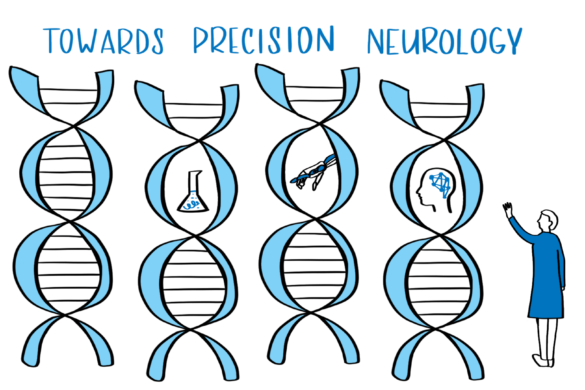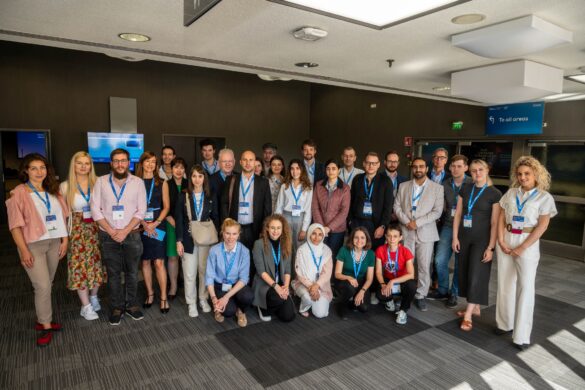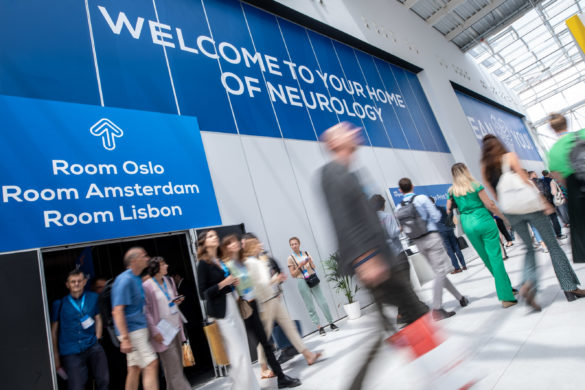by Irina Maria Vlad
The second symposium of the newly founded joint collaborative group of the EAN and the ESC (European Society of Cardiology) on heart and brain interaction took place in front of an excited audience, eager to hear about the intricate relationship between the heart and brain, with a focus on cognition and gender. This symposium brought together leading experts to explore the crossroads of neurology and cardiology, emphasising the importance of interdisciplinary research for improved patient outcomes.
Bridging Neurology and Cardiology
Chaired by Prof. Matthias Endres of Charité University Hospital in Berlin, the session provided a comprehensive look at how heart-brain interactions impact cognitive health as well as the importance of gender differences in the face of neurological and cardiological diseases. Prof. Endres emphasised the significance of this collaboration, his introduction setting the stage for an engaging discussion on the interplay between neurology and cardiology.
Heart Disease and Cognitive Impairment
The Cardiologist’s Perspective:
Prof. Wolfram Doehner, also from Charité, a distinguished cardiologist and professor of interdisciplinary stroke research, presented on how heart disease influences cognitive function. He explained that the metabolic dysfunction in heart failure patients often exacerbates cognitive decline. Highlighting the deep connection between the heart and brain, he stressed that dysfunction in one organ can adversely affect the other.
Doehner shared that cognitive impairment affects up to 75% of heart failure patients, impacting their quality of life and increasing hospitalisation rates. He advocated for optimised heart failure treatments, including lifestyle modifications and medical therapies, which could slow cognitive decline. His insights underscored the need for integrated care strategies that consider both physical and cognitive health.
The Neurologist`s Perspective:
Offering a neurologist’s perspective, Professor Georgios Tsivgoulis Professor of Neurology and Chairman of the Second Department of Neurology at the National & Kapodistrian University of Athens, emphasised the relationship between cognitive impairment and heart disease. He highlighted that cardiovascular health plays a critical role in cognitive function, with heart disease often worsening cognitive decline. Furthermore, he pointed out a large array of cardiovascular conditions like atrial fibrillation, carotid artery disease, heart failure, etc., are linked to cognitive impairment, emphasising the need for comprehensive management of these conditions. Lastly, he advocated for the establishment of cardio-neurology teams to provide care, addressing both cardiac and cognitive health.
Exploring Sex Differences in Heart-Brain Interactions
The Cardiologist`s Perspective
Prof. Catherine Gebhard from Inselspital University Hospital in Bern focused on sex differences in heart-brain interactions. As Head of Preventive Cardiology and the Women’s Heart Center, she presented compelling data on how men and women experience heart-brain interactions differently, affecting the prevalence and outcomes of related conditions.
She said that women often experience conditions like Takotsubo syndrome more frequently than men, suggesting that emotional and physical stressors have differing impacts based on sex. She advocated for gender-specific research and treatment approaches, highlighting the necessity of personalized strategies in patient care. Furthermore, she also spoke about the increased amygdala activity being correlated with future cardiovascular events. An element encountered in Takotsubo sufferers.
The Neurologist`s Perspective
In his engaging lecture at the EAN and ESC symposium, Prof. Matthias Endres, Director of the Neurology Department at Charité University Hospital in Berlin, discussed the significant sex differences in brain-heart interactions from a neurologist’s perspective. He highlighted how the distribution of leading causes of death varies between men and women, noting that neurological conditions like stroke, dementia, and multiple sclerosis are more prevalent in women. He noted anatomical and sex-specific factors influencing neurological disorders.
He gave several examples of specific conditions, such as ischaemic stroke, where women experience older age at onset and unique risk factors, including pregnancy-related hypertension as well as more frequent conditions like diabetes. Despite a higher age at stroke onset, women often face undertreatment, poorer outcomes, and greater post-stroke depression.
He also explored Takotsubo syndrome, predominantly affecting women, and its neurological triggers like migraines and emotional stress. His analysis of stroke-heart syndrome revealed that women experience higher rates of acute myocardial injury post-stroke, leading to worse outcomes. Prof. Endres concluded by stressing the critical roles of sex and gender in understanding brain-heart interactions, advocating for more tailored medical approaches considering these gender differences.
The EAN and ESC symposium showcased the potential of interdisciplinary collaboration in advancing patient care and medical research. The insights shared by Profs Endres, Doehner, Tsivgoulis, and Gebhard underscored the need for a comprehensive approach to understanding the heart-brain connection, with a particular focus on cognition and gender.











